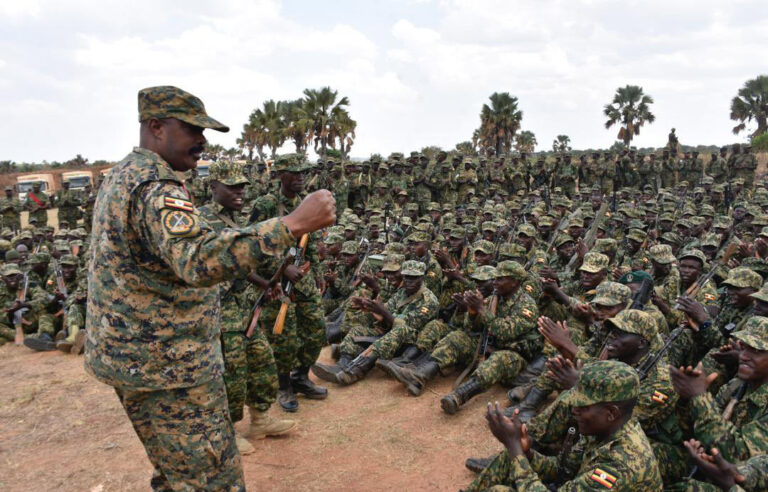Uganda’s First Son and Senior Presidential Advisor on Special Operations, General Muhoozi Kainerugaba, announced on Monday that Ugandan forces in South Sudan have been ordered to halt their attacks on the White Army.
The move follows a directive from Uganda’s President and Commander-in-Chief, Yoweri Museveni.
In a tweet posted on Monday afternoon, Gen. Kainerugaba stated, “On the instructions of the Commander-in-Chief, President Museveni, I have told our forces in South Sudan to stop attacking the White Army. If the White Army does not make any more offensives, we will stop our attacks.”
The announcement signals a potential de-escalation of hostilities between Ugandan forces and the White Army, a militia group primarily composed of armed youth fighters in South Sudan.
The White Army has historically played a role in the country’s conflict, often aligning with various factions in South Sudan’s prolonged civil unrest.
Background of the Conflict
Uganda has been involved in South Sudan’s conflict for years, often deploying troops to stabilize the region and support the government in Juba.
The presence of Ugandan forces has been both praised for its role in preventing the collapse of South Sudan’s administration and criticized for alleged interference in internal matters.
The White Army, mainly consisting of Nuer youth fighters, has been known for its resilience and unpredictable nature.
It has fought both for and against government forces at different points in South Sudan’s conflicts, complicating peace efforts in the region.
While the exact circumstances leading to Uganda’s latest military actions against the White Army remain unclear, sources suggest that recent clashes between the group and government-allied forces had prompted an escalation.
The directive from President Museveni to halt hostilities could indicate an effort to encourage dialogue and reduce tensions.
Implications of the Ceasefire
The decision to suspend attacks on the White Army raises questions about the broader regional security strategy and Uganda’s military engagement in South Sudan.
Analysts suggest that Museveni’s directive could be part of wider diplomatic efforts to stabilize the neighboring country, which has struggled with conflict since gaining independence in 2011.
South Sudanese officials have yet to comment on Uganda’s announcement, but regional observers note that past ceasefires with militia groups have often been fragile.
The success of this truce will largely depend on whether both sides commit to halting hostilities.
What’s Next?
While Uganda’s forces are poised to halt their attacks, Gen. Kainerugaba’s tweet made it clear that this ceasefire is conditional. If the White Army resumes its offensives, Uganda may reconsider its position.
Observers are now watching closely to see whether the White Army will respond to this gesture of de-escalation or if fighting will continue.
The coming days could determine whether Uganda’s latest move paves the way for further peace efforts or merely serves as a temporary pause in hostilities.
For now, the directive from President Museveni marks a shift in Uganda’s military posture in South Sudan, raising hopes for a reduction in violence but also leaving uncertainty over the future of the conflict.

